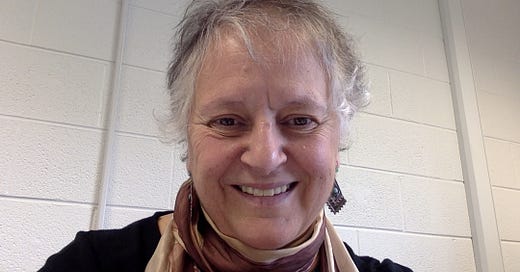I came across a pamphlet I wrote about 25 years ago on managing a child’s behavior. It made me realize how differently I view child behavior now, as opposed to then.
I have enough difficulty managing my own behavior, let alone anyone else's – particularly a child's. Managing behavior is itself a poor way to phrase what I mean. To me, behavior comes from a desire, a wish to please, to gain acceptance and to feel good about one’s self. It can also come from fear, and with fear comes avoidance. WIth fear comes the “fight or flight” response where a child becomes trapped in their own fear and will either run from or fight against what is causing the fear.
A child will seek to please a parent, as their very life literally depends upon pleasing the parent. The infant or child is helpless in view of the adult. Think about what we must look like to this helpless, little being. This being cannot tell us what is wrong, so s/he cries. It might be wet, ill or a myriad of other things. So we try to calm the child, change the diaper, etc. But we must also remember the infant is a highly empathic little being. S/he wants to feel good and s/he wants to receive love, so s/he will respond to the parent in a way s/he believes will please.
It was not unusual for parents to come into schools to see me, whether internationally or domestically, worried about their child being highly anxious. I remember one little girl who refused to toilet train, at 6 years of age. It was a conscious decision on her part, and she knew exactly what she was doing. She insisted on wearing diapers and sat in first grade doing so. As I interviewed, it became apparent the mother was not only highly anxious, but incredibly controlling and angry. The father said nothing. The parents were educated, but my attempts to explain how parental behavior was affecting the child were not well received. In their mind, the problem was solely the child. After working with the child slowly and gently, the teacher managed to have the child use the bathroom, but this was sabotaged at home. The child had above-average intellectual potential and returned to pleasing the person whose love she most desired, her mother, and refused to toilet in school.
This is in contrast to a parent I recently met whose child was diagnosed as autistic and who was aggressive. This mother worked within herself to totally accept her child where she was and to allow her expression. This mother developed greater self-expression and love for herself. As she did so, her daughter became calmer and calmer and now is able to spend time with the family in a calm and loving manner. It is a relationship that is growing and not perfect, but it is mutually loving and gaining respect.
I certainly know there have been points within my own life where my behavior was more of an expression of my own anger and my own need to get it out, than it was prompted by any behavior on the part of another person. The primary reason I did not have children was that I felt I could not trust myself to react in a positive manner towards my own children. I feared I would physically hurt them, as my anger was not in control. I had to love and accept myself before I could allow anyone else into my life.
So often when we become involved in relationships, we do so for the wrong reasons. A woman I met recently was saying she married to get out of her parents’ home. I know when I became involved in a relationship, the first thing I seemed to lose was myself. I had no idea who I was and so would do what I thought would please the other person. This would work for a while, then my own inner being reasserted itself. I acted in a way that appeared schizophrenic to the other person. Many personalities rolled into one and none were predictable. Eventually, I realized the person I needed love from, and who I needed to please, was myself -- then life gained the beauty and love I craved.
Another important realization is that I am not alone in this. I rarely meet individuals who are happy with themselves and who are raising children who have a sense of their own selves, their uniqueness, their purpose and their divinity. When I have tried to explain these concepts to parents, the response was often a blank expression. More often than not, the discussion was on managing, disciplining, or controlling the child, not on how to allow the child to feel greater love and security.
The behavior I speak about and wish to achieve with children comes through love and acceptance. Although it is a simple realization, it is one that took me more than 50 years to see clearly. I try to use my own journey to set a clearer path for others, to develop their own uniqueness through love and to also see their own divine essence...and that of their children.



